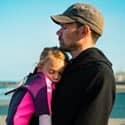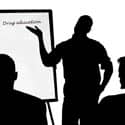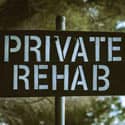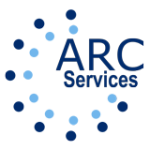Teaching Life Saving Skills in Addiction Treatment
What should you be looking for when searching for a rehab program for your son, daughter, or spouse? The first thing that comes to mind would be that the facility is well-reputed. They have some success rate, and the counsellors are well trained.
But outside of these obvious criteria, what would be needed to really help the substance abuser? Many rehabs and detox centers are focused on the drug or alcohol aspect of treatment and forgo life skills.
Though this is the correct action, it is not the only aspect of addiction that needs addressing. You have most likely seen that the person abusing some substance is doing so to mask or find relief to an unwanted condition. These personal issues are often the main points of address in counselling.
Skills for Living & Rehabilitation
There is, however, another facet of substance abuse that is not always part of a rehab program: life skills. Simply put, “life skills” refers to the skills you need to make the most out of life.
In 1999, the World Health Organization identified six key areas of life skills. Communication and interpersonal relations, decision-making and problem-solving, creative thinking, and critical thinking are examples of areas that require some skill level.
Although there is no definite list of life skills, we mention a few that will help someone recover from addiction. When a person recovers from addiction, the following abilities are either hindered or never there from the beginning.
Many abusers will tend to withdraw their outward nature and become introverts. People with extended substance abuse will have a weakened ability to solve problems or make survival decisions and lower physical health.

Insurance
Coverage
Quitting
Today

Life Skills: Assertiveness and Self-control
A predominant life skill is “assertiveness and self-control.” In the world of addiction, one may face insistence and demands from others with little consideration for that person’s well-being. Without this skill, the person can agree to actions and decisions that they normally would not do. Drugs and alcohol tend to break down the person’s ability to say NO.
They become timid and agreeable. It would not take much convincing to have a person go from snorting cocaine to injecting it. Or to go from just drinking to doing cocaine or MDMA. A drug dealer (or “friend”) is the main person that will push to do another “hit” or try new drugs. Without self-control and assertiveness, a person can crumble when faced with these demands and offerings.

Questions to
Ask a Rehab
Treatment
Approaches

Life Skills: Resilience and Problem Solving
Another critical skill is resilience and the ability to cope with problems. When a person goes through detox and drug rehab, they must be ready and able to cope with life problems. If the person does a rehab that addresses past trauma and emotions and then releases the emotional upsets, they will feel better. Will this be followed by life skills to deal with the issue if it presents itself again down the road?
One thing is sure: anyone completing an addiction treatment program will, without a doubt, come into contact with a life problem. I need money but don’t have a job, my friends want to go to the bar, but I can’t drink, etc. A problem is always one thing that counters another. A good life skill would teach how to address that situation and others.
ALL problems have a solution. A solution is best when it produces the greatest good for the greater parts of life and the least harm for all aspects of life. In other words, does this decision harm me, my family, my group, and society, or is the harm only going to affect my girlfriend, such as when breaking up a toxic relationship. What and who will my decision affect positively and negatively?
Importance of Abilities After Treatment
The main thing to recognize is that the facility you decide to enter should offer some life skills. Unfortunately, some centres don’t have this advantage. It’s up to you or your loved ones to find a suitable service with these teachings.
One such available service is life coaching sessions. One of the services we offer is addiction recovery coaching sessions which teach people life skills. It supplements an addiction treatment program and gives a better chance at complete and long-lasting sobriety.
Recognizing problem areas and gaining the skills to address these situations is a must when seeking rehabilitation. If you or someone you know needs help with this type of service, call our referral service or request a callback.

Choosing a
Private Rehab
Detoxing
on Your Own


About Treatment
Find out more about us.

Marc J. Bernard
Author,
Substance Use Disorder & Recovery Professional,
Referral & Consultation Counsellor







